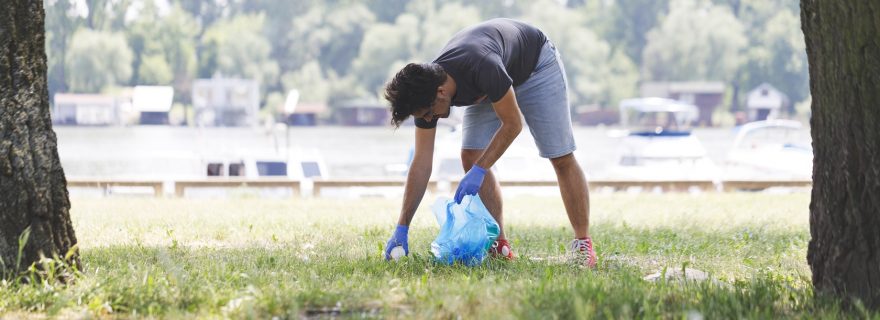How to Be a Sustainable Anthropologist?
Anthropologists often see themselves as committed and active global citizens. But how much of what we teach and learn about sustainability is expressed in anthropologists' daily actions? And how can we be (or become) sustainable anthropologists?
In Dutch society at the moment sustainability is perhaps still more a buzzword than a course of action, but environmental awareness does seem to be growing. Supermarkets are expanding their range of organic products, corporate social responsibility is on the rise, and projects to reduce the use of natural gas are on their way. These developments can also be observed within our own university: the Leiden University Green Office was established in 2016.
Sustainability in Anthropology
In Anthropology, notions of sustainability, and the acts that revolve around these notions are researched predominantly within environmental and economic anthropology. Central to many research projects in our institute are questions of sustainable development and environmental conservation: how do people use, influence, and protect both their own and distant environments and resources? How do people think about sustainable futures? More specifically, what are the social implications and significances of phenomena such as production and consumption, food, water, energy, soil, and climate change?
Now I wonder, since we anthropologists often see ourselves as committed and active global citizens, how much of what we teach and learn about sustainability is expressed in our daily actions? How do we ourselves use, influence, and protect environments and resources, both close to home and far away? How do we think about and work towards sustainable futures? In other words, how can we be (or become) sustainable anthropologists, at home and at work?
Our private lives
Let’s start by taking a look at our private lives, where acting (more) sustainably may mean, for instance, trying our best to consume less or only products that do as little harm as possible to the environment; to save energy; recycle; participate in park or beach cleanups; to get about on foot, by bicycle, or by public transport; to go on vacation close to home; to choose bee-friendly plants in our gardens or on our balconies; and to switch to a more sustainable bank or insurance company to ensure our money isn’t invested in weapons, say, or deforestation (Note: These forms of action are often mentioned in public debate on sustainability in the Netherlands. This doesn’t mean all people agree that they are the most effective. In addition, consumption patterns influence global markets and people’s lives all over the world, so changing them will have an impact on people’s jobs and income elsewhere).
University offices and classrooms
The next step is for us – as students, teachers, and researchers – to transform our environmental awareness into action in our university offices and classrooms. We can, for example, write and teach critically about sustainability; bring our own organic, vegetarian, or vegan lunch to work in reusable bags or containers; use our own reusable cups for coffee and tea, and make use of the recycling bins. We can then inspire other people to do the same, so that in the end it will be self-evident for the coffee, tea, lunches, drinks, and snacks provided by our Institutes and study associations to be fair chain and organic (although these labels should be evaluated critically), and for our cups and plates to be reusable, recyclable or biodegradable. In addition, we can ask questions about the University’s environmental and investment policy, pension fund, and choice of bank.
And what about our research activities?
While it is becoming more common for anthropologists to do research close to home, flying off to faraway destinations is still part of the job: if not for fieldwork, then at least for conferences or guest lectures. Could, and would, we consider taking the train to our field site and conferences? Or perhaps investigate whether we really need to be physically present to present a paper?
And what about our presence in the field? Of course, we adhere to codes of ethics to minimize the risk of harming people. But what about the environment? Can we continue to be environmentalists if our research participants, in our view, are not? If our principles are seen as patronizing, evoking confusion or hostility? How far can we take our environmental activism in places where littering is not seen as such, or waste management systems are virtually nonexistent? Where coal is the only available resource for heating and cooking? Where there are no sustainable consumption choices at all? And how should we handle our vegetarianism in places where livestock roam mountain hills freely, but fruit and vegetables are hard to come by because they have to be imported?
Various notions of sustainability
The difficulty with sustainability is that it is isn’t uncontested: it is shaped by people’s values, norms, perceptions, and behavior and can, therefore, mean different things to different people at different times. We should be sensitive to various notions of sustainability and explore how, together, they can bring about a world in which both humans and their (natural) environments have promising futures ahead.
This blog cannot do justice to the complexity of matters of sustainability, so I hope it will inspire us to further discuss the personal and professional struggles we encounter on our way to becoming sustainable anthropologists.



0 Comments
Add a comment